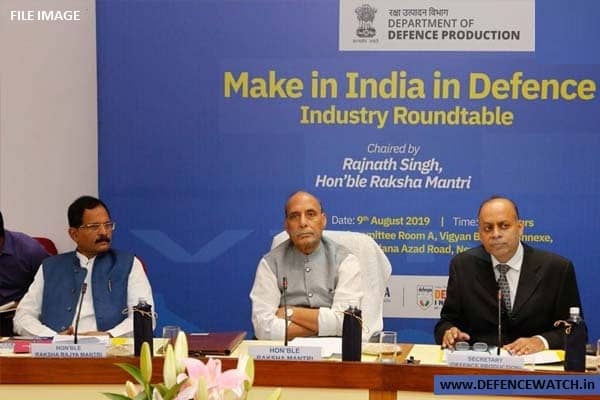As per the decision of GOI, procurement of defence equipment will not have any offset clause if the deal is done through inter-government agreement (IGA), government-to-government dealing or under an ab-initio single vendor. Under Offset clause, it’s required for a foreign vendor to invest a part of the contract value in India.
Recently Defence Acquisition Council approved the decision, as a part of the government’s new policy for defence acquisitions.
Unveiling the new policy, Defence Minister Rajnath Singh, twitted that it has been “aligned” with the vision of Self Reliant India and empowering the Indian domestic industry through Make in India initiative with the ultimate aim of turning India into a global manufacturing hub.
He further said that with the new Foreign Direct Investment policy announced, the DAP 2020 has adequately included provisions to encourage FDI to establish manufacturing hubs both for import substitution and exports while protecting the interests of Indian domestic industry.
Director General (Acquisitions) Apurva Chandra stated that any critical technology has not been brought to India yet by offset clause, and only had been proven beneficial for foreign vendors loading extra costs in contracts in single-vendor or government-to-government deals.
Chandra also added that the defence procurement policy changes will not be retrospective and hence ongoing deals will not be impacted.
However, officials have added that offset will be a part of multi-vendor competitive procurement contracts. Since the clause will not be there in the three categories; IGA, government-to-government deals or ab-initio single vendors, offsets are expected to reduce substantially.
To buy 36 Rafale fighter jets, a deal had been signed as an IGA with the French government, which included a 50 per cent offset clause.
Another official said that in order to remove the obligations for contracts under the three categories a reduction of cost of acquisitions is expected as the defence firms used to factor in funds required to fulfil offset conditions. The DAP released after over a year-long consultation with concerned stakeholders, features a number of steps aimed at turning India into a global manufacturing hub of military platforms, reducing timelines for the procurement of defence equipment and allowing the purchase of essential items by the three services through capital budget under a simplified mechanism.
In 2002, the first defence procurement procedure was promulgated and since then, it has been revised periodically to provide impetus to the growing domestic industry. The DAP will come into effect from the first of October. A new chapter has been incorporated in the DAP on information and communication technologies, post-contract management, acquisition of systems developed by the state-run defence entities like the DRDO and Defence Public Sector Undertakings (DPSUs).
According to the statement given by defence minister, in order to establish manufacturing hubs both for import substitution and exports while protecting the interests of the Indian domestic industry, DAP has also included provisions to encourage foreign direct investment (FDI).
The defence minister further tweeted that the offset guidelines have also been revised, wherein preference will be given to manufacturing of complete defence products over components and various multipliers have been added to give incentivisation in discharge of offsets.
For single-stage accord of AoN (Acceptance of Necessity) in all cases, the policy has also provided up to Rs 500 crore to cut delays in approval of acquisition proposals. The DAP also included the measures to reform pre-induction testing of defence equipment. As per the DAP, scope of trials will be restricted to physical evaluation of core operational parameters. Other parameters may be evaluated based on vendor certification, certification by accredited laboratories, computer simulations of parameters among others.





